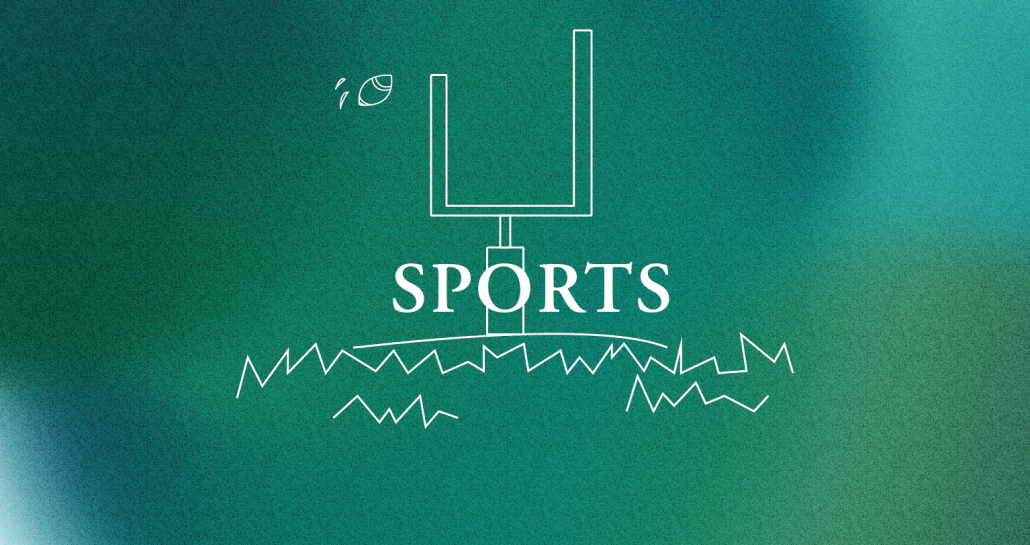MORE THAN AN ATHLETE
The Cleveland Summit blueprinted athlete activism
Muhammad Ali, Jim Brown, Bill Russell and Kareem Abdul-Jabbar set the precedent for athletes making a change off the fields and courts.
Muhammad Ali, Jim Brown, Bill Russell and Kareem Abdul-Jabbar set the precedent for athletes making a change off the fields and courts.


Oftentimes, people will look at professional athletes and see one thing: a source of entertainment. They are enamored and unable to look past the touchdowns, dunks, goals, home runs and more. However, these athletes are also educated individuals who have contributed their influential opinions to society.
They are, in fact, more than athletes.
Back in 2018, journalist Laura Ingraham infamously aimed to reproach NBA superstar LeBron James for talking about politics.
“It’s always unwise to seek political advice from someone who gets paid $100 million a year to bounce a ball,” said the Fox News host. “Keep the political comments to yourselves … Shut up and dribble.”
Her comments received swift backlash and prompted a powerful response from James.
“The best thing she did was help me create more awareness,” James said. “I get to sit up here and talk about social injustice … We will definitely not shut up and dribble.”
While there will be other installments of this column mentioning the activism of James and other contemporary athletes, this article is not about him. In fact, the activism of this generation’s athletes would not even be possible without the sacrifices of those who came before them. More specifically, the advocacy of the trailblazers of the civil rights movement in the 1960s wave of athlete activism.
One of the most influential events in the history of activism and sports, the Cleveland summit — sometimes referred to as the “Ali Summit” — was held on June 4, 1967. It was a pivotal conference organized by 11 prominent Black athletes, such as NBA Hall of Fame centers Bill Russell and Kareem Abdul-Jabbar, NFL Hall of Fame running back Jim Brown and all-time boxing great Muhammad Ali. The fact that these well-known sportsmen were involved gave the meeting a lot more weight.
The main goal of the summit was to support Muhammad Ali’s choice to conscientiously protest the draft during the Vietnam War. Ali had objected to the war, giving religious grounds for his refusal to be drafted into the United States Army. As a result, he faced legal repercussions including the loss of his heavyweight title, a five-year jail term, a $10,000 fine — about $90,000 today — and a boxing suspension.
After the multi-hour meeting between the athletes ended, Ali’s anti-war stance remained the same, however, now with the support of his fellow Black athletes.
“There’s nothing new to say,” Ali said to reporters at the ensuing news conference.
Two weeks later, Ali was found guilty of evading the war by an all-white jury. He would be banned from boxing for an additional three years until 1971 when the Supreme Court would ultimately overturn his conviction.
Despite the summit not achieving its initial goal, it had a wide range of positive effects. It contributed to the larger civil rights and anti-war movements of the 1960s and 1970s by making a statement against racial injustice and the Vietnam War. Additionally, it demonstrated the relationship between activism, politics and athletics while demonstrating the ability of players to shape public opinion. Most importantly, the summit set the blueprint for athletes in the future to come together to fight social injustice.
All four of these superstar athletes — Ali, Brown, Russell and Abdul-Jabbar — went on to continue the fight against racism and other discrimination well after their careers. Again, let me emphasize, modern sports activism would not be not possible without them.
As an avid sports fan, I can admit the entertainment athletes give us on a day-to-day basis. However, it is vital we as a society acknowledge and appreciate the actions and opinions of athletes outside the realm of sports, as seen through the historic Cleveland summit.
Joshua Sacher is a sophomore writing about athletes who led the change for social justice in his column, “More Than An Athlete,” which runs every other Thursday. He is also a sports editor at the Daily Trojan.
We are the only independent newspaper here at USC, run at every level by students. That means we aren’t tied down by any other interests but those of readers like you: the students, faculty, staff and South Central residents that together make up the USC community.
Independence is a double-edged sword: We have a unique lens into the University’s actions and policies, and can hold powerful figures accountable when others cannot. But that also means our budget is severely limited. We’re already spread thin as we compensate the writers, photographers, artists, designers and editors whose incredible work you see in our daily paper; as we work to revamp and expand our digital presence, we now have additional staff making podcasts, videos, webpages, our first ever magazine and social media content, who are at risk of being unable to receive the support they deserve.
We are therefore indebted to readers like you, who, by supporting us, help keep our paper daily (we are the only remaining college paper on the West Coast that prints every single weekday), independent, free and widely accessible.
Please consider supporting us. Even $1 goes a long way in supporting our work; if you are able, you can also support us with monthly, or even annual, donations. Thank you.
This site uses cookies. By continuing to browse the site, you are agreeing to our use of cookies.
Accept settingsDo Not AcceptWe may request cookies to be set on your device. We use cookies to let us know when you visit our websites, how you interact with us, to enrich your user experience, and to customize your relationship with our website.
Click on the different category headings to find out more. You can also change some of your preferences. Note that blocking some types of cookies may impact your experience on our websites and the services we are able to offer.
These cookies are strictly necessary to provide you with services available through our website and to use some of its features.
Because these cookies are strictly necessary to deliver the website, refusing them will have impact how our site functions. You always can block or delete cookies by changing your browser settings and force blocking all cookies on this website. But this will always prompt you to accept/refuse cookies when revisiting our site.
We fully respect if you want to refuse cookies but to avoid asking you again and again kindly allow us to store a cookie for that. You are free to opt out any time or opt in for other cookies to get a better experience. If you refuse cookies we will remove all set cookies in our domain.
We provide you with a list of stored cookies on your computer in our domain so you can check what we stored. Due to security reasons we are not able to show or modify cookies from other domains. You can check these in your browser security settings.
These cookies collect information that is used either in aggregate form to help us understand how our website is being used or how effective our marketing campaigns are, or to help us customize our website and application for you in order to enhance your experience.
If you do not want that we track your visit to our site you can disable tracking in your browser here:
We also use different external services like Google Webfonts, Google Maps, and external Video providers. Since these providers may collect personal data like your IP address we allow you to block them here. Please be aware that this might heavily reduce the functionality and appearance of our site. Changes will take effect once you reload the page.
Google Webfont Settings:
Google Map Settings:
Google reCaptcha Settings:
Vimeo and Youtube video embeds:
The following cookies are also needed - You can choose if you want to allow them:
